Jacke Wilson's Blog, page 10
September 8, 2022
The History of Literature #434 – The Story of the Hogarth Press Part 1 – Virginia Woolf’s First Self-Published Story
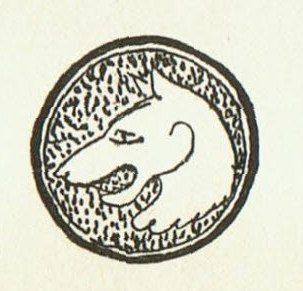
Virginia Woolf has long been celebrated as a supremely gifted novelist and essayist. Less well known, but important to understanding her life and contributions to literature, are her efforts as a publisher. In the decades that she and her husband operated the Hogarth Press – starting with a hand-operated printer they ran on their dining room table, cranking out one page at a time – they published some Modernist classics, including works by Virginia and The Waste Land by T.S. Eliot. In this episode, Jacke takes a look at the decision to buy the press, the effect it had on Virginia’s life and writing career, and the very first book the Woolfs put out: Two Stories, featuring Leonard’s short story “Three Jews” and Virginia’s “The Mark on the Wall.”
Additional listening suggestions:
69 Virginia Woolf and Her Enemies (with Andrea Zemgulys)Virginia Woolf (with Gillian Gill)T.S. Eliot | The Waste LandHelp support the show at patreon.com/literature or historyofliterature.com/shop. The History of Literature Podcast is a member of Lit Hub Radio and the Podglomerate Network. Learn more at www.thepodglomerate.com/historyofliterature.
September 7, 2022
The History of Literature #433 – Emma’s Pick – “To Build a Fire” by Jack London
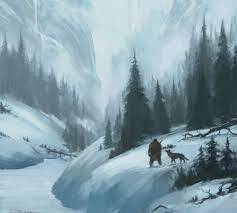
Is this the greatest man vs. nature story ever? Hard to say. But it just might be the purest.
Kicking off a new HOL feature, producer Emma chooses a short story for Jacke to read and discuss – Jack London’s classic “To Build a Fire.”. Get somewhere warm and let your mind drift to the snowy Yukon for this gripping tale of man vs. nature and man vs. himself.
Additional listening suggestions:
101 Writers at Work90 Mark Twain’s Final RequestEdith Wharton and “Roman Fever”Help support the show at patreon.com/literature or historyofliterature.com/shop. The History of Literature Podcast is a member of Lit Hub Radio and the Podglomerate Network. Learn more at www.thepodglomerate.com/historyofliterature.
September 6, 2022
The History of Literature #432 – Hemingway’s One True Sentence (with Mark Cirino)

“All you have to do is write one true sentence,” Ernest Hemingway said in A Moveable Feast. “Write the truest sentence that you know.” And so he did: the man wrote thousands of sentences, all in search of “truth” of some kind. What does a “true sentence” mean for a fiction writer? What true sentences did Hemingway himself write? And how much of this is in the eye of the beholder?
In this episode, Jacke is joined by Mark Cirino, the host of the One True Podcast and author of the book One True Sentence: Writers and Readers on Hemingway’s Art, for a discussion of Hemingway, his quest for true sentences, and what that has meant for dozens of contemporary readers. (Special bonus: Mark and Jacke roam through Hemingway’s works before choosing their own true sentences.)
Additional listening suggestions:
47 Hemingway vs Fitzgerald (with Mike Palindrome)162 Ernest Hemingway275 Hemingway and the Truth (with Richard Bradford)Help support the show at patreon.com/literature or historyofliterature.com/shop. The History of Literature Podcast is a member of Lit Hub Radio and the Podglomerate Network. Learn more at www.thepodglomerate.com/historyofliterature.
September 5, 2022
The History of Literature #431 – Langston Hughes
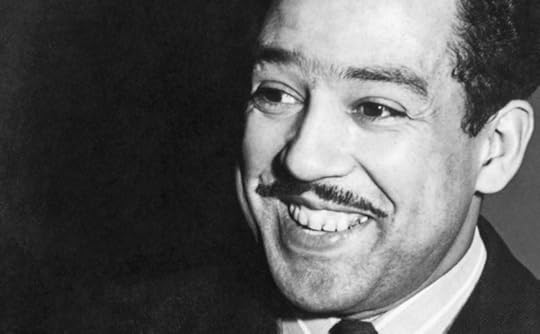
Very few writers have had the influence or importance of Langston Hughes (1902?-1967). Best known for poems like “The Negro Speaks of Rivers,” “I, Too,” and “The Weary Blues,” Hughes was also a widely read novelist, short story writer, and essayist – and his promotion of Black people and culture became central to the cultural explosion known as the Harlem Renaissance. In this episode, Jacke takes a look at Hughes’s early years, including his childhood, adolescence, and the poems Hughes wrote in his teens and twenties, as he forged his identity as a writer in the face of often intense criticism.
Additional listening suggestions:
Zora Neale Hurston and Langston Hughes (with Yuval Taylor)88 The Harlem Renaissance94 Smoke, Dusk, and Fire – The Jean Toomer Story310 Lorraine HansberryHelp support the show at patreon.com/literature or historyofliterature.com/shop. The History of Literature Podcast is a member of Lit Hub Radio and the Podglomerate Network. Learn more at www.thepodglomerate.com/historyofliterature.
August 9, 2022
The History of Literature #430 – In Shakespeare’s Shadow (with Michael Blanding)
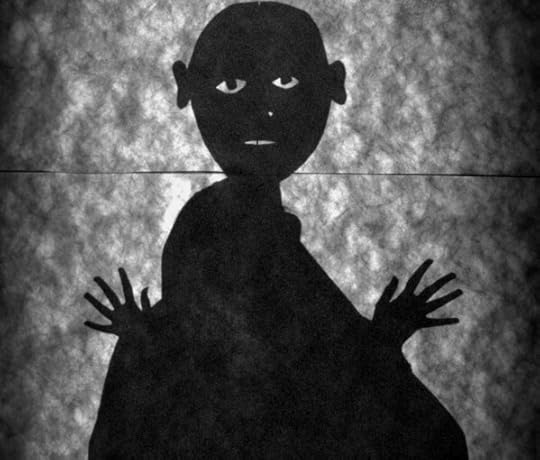 https://open.spotify.com/episode/0hd6rJHmhnVn6t9BX37lJP?si=a8abd777ae184061
https://open.spotify.com/episode/0hd6rJHmhnVn6t9BX37lJP?si=a8abd777ae184061It’s a paradox that has bothered Shakespeare’s fans for centuries: the man was as insightful into human beings as anyone whoever lived, and yet his own life is barely documented. This combination of literary genius plus biographical uncertainty has spun off a number of mysteries – including the question of how exactly Shakespeare came to know the things that he did.
In this episode, Jacke talks to investigative journalist Michael Blanding, author of In Shakespeare’s Shadow, about a renegade scholar named Dennis McCarthy’s theory that Shakespeare may have drawn upon a previously unknown source – the lost plays of Sir Thomas North – and how Blanding himself joined the pursuit of searching for evidence to support McCarthy’s theory.
Additional listening suggestions:
360 FMK Shakespeare! (with Laurie Frankel)70 Shakespeare’s Julius Caesar48 HamletHelp support the show at patreon.com/literature or historyofliterature.com/shop. The History of Literature Podcast is a member of Lit Hub Radio and the Podglomerate Network. Learn more at www.thepodglomerate.com/historyofliterature.
August 8, 2022
The History of Literature #429 – Books I Have Loved (with Charles Baxter, Margot Livesey, and Jim Shepard)
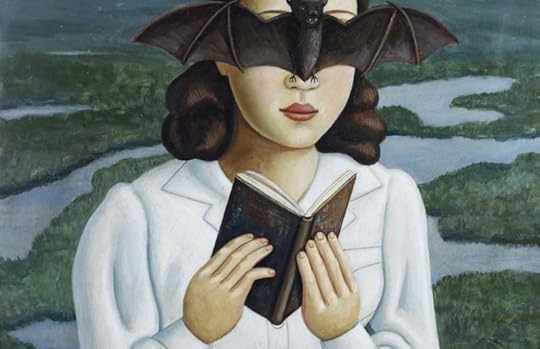
For years, we’ve enjoyed talking to writers about the books they love best. In this “best of” episode, we go deep into the archive for three of our favorites: Jim Shepard and his youthful discovery of Bram Stoker’s Dracula; Margot Livesey and her love for Ford Madox Ford’s modernist classic The Good Soldier; and Charles Baxter telling us about his love for the poetry of James Wright. Enjoy!
Additional listening suggestions:
96 Dracula, Lolita, and the Power of Volcanoes (with Jim Shepard)63 Chekhov, Bellow, Wright (with Charles Baxter)78 Jane Eyre, The Good Soldier, Giovanni’s Room (with Margot Livesey)Help support the show at patreon.com/literature or historyofliterature.com/shop. The History of Literature Podcast is a member of Lit Hub Radio and the Podglomerate Network. Learn more at www.thepodglomerate.com/historyofliterature.
August 7, 2022
The History of Literature #428 – Edward Gibbon (with Zachary Karabell)
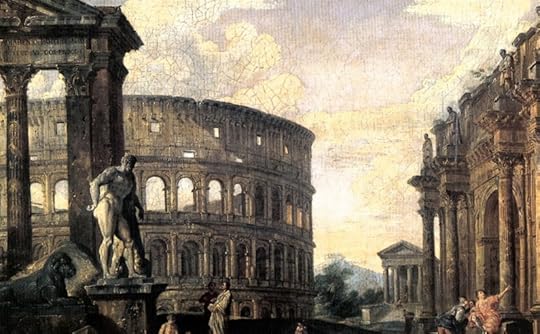
Since the first publication of his six-volume magnum opus, The History of the Decline and Fall of the Roman Empire, Edward Gibbon (1734-1797) has been ranked among the greatest historians who ever lived. What made his work different? Does it hold up today? And what lessons can a modern-day historian draw from his example? In this episode, Jacke talks with author Zachary Karabell about Gibbon’s inspiration, influence, and legacy.
ZACHARY KARABELL is the author of numerous books, including Inside Money: Brown Brothers Harriman and the American Way of Power and The Leading Indicators: A Short History of the Numbers That Rule Our World. He is also the founder of the Progress Network at New America, the president of River Twice Capital, and the host of the podcast “What Could Go Right?”
Additional listening suggestions:
321 Thucydides
285 Herodotus
36 Poetry and Empire (Virgil, Ovid, Horace, Petronius, Catullus)
Help support the show at patreon.com/literature or historyofliterature.com/shop. The History of Literature Podcast is a member of Lit Hub Radio and the Podglomerate Network. Learn more at http://www.thepodglomerate.com/historyofliterature.
August 6, 2022
The History of Literature #427 – Bashō’s Best – Haiku and the Essence of Life
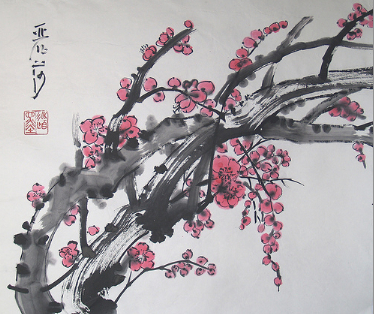
In our last episode, Jacke looked at the life of celebrated Japanese poet Matsuo Bashō (1644-1694), the widely acknowledged master of haiku. In this episode, Jacke looks deeper into the nature of Bashō’s best works, organizing them into some loose categories and offering some thoughts on haiku in Bashō’s world and ours.
Additional listening suggestions:
425 Matsuo Bashō, Haiku’s Greatest Master75 The Tale of Genji by Lady Murasaki418 “Because I Could Not Stop for Death” by Emily DickinsonHelp support the show at patreon.com/literature or historyofliterature.com/shop. The History of Literature Podcast is a member of Lit Hub Radio and the Podglomerate Network. Learn more at www.thepodglomerate.com/historyofliterature.
August 5, 2022
The History of Literature #426 – Matsuo Bashō – Haiku’s Greatest Master
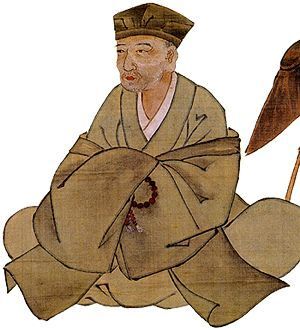
In addition to being what is probably the most widely used poetic form, haiku is almost certainly the most often misunderstood. In this episode, Jacke examines the life and works of Matsuo Bashō (1644-1694), haiku’s greatest master, as he sorts through his thoughts on the uses (and potential misuses) of the haiku form. What makes much of it so bad? And how does that differ from what is truly great?
Additional listening suggestions:
62 Bad Poetry7A Proust, Pound, and Chinese Poetry312 Yukio Mishima423 Roger EbertHelp support the show at patreon.com/literature or historyofliterature.com/shop. The History of Literature Podcast is a member of Lit Hub Radio and the Podglomerate Network. Learn more at www.thepodglomerate.com/historyofliterature.
August 4, 2022
The History of Literature #425 – Tom Stoppard (with Scott Carter)
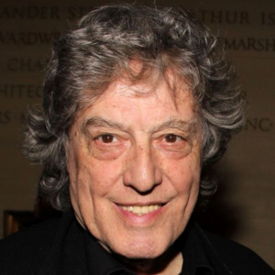
Born Tomáš Sträussler, in what was then Czechoslovakia, celebrated playwright Tom Stoppard (1937- ) became one of the best known British playwrights in the world. Known for his with and humor, his facility with language, and the depth of his philosophical inquiries, he found success with plays like Rosencrantz and Guildenstern Are Dead, The Coast of Utopia, The Invention of Love, and The Real Thing. He has also been a successful writer for radio, television, and film, with scripts like Shakespeare in Love and Indiana Jones and the Last Crusade benefiting from his eye for drama and ear for dialogue. In this episode, Jacke talks to television producer and playwright Scott Carter about his admiration for Tom Stoppard’s life and works.
Additional listening suggestions:
Samuel Beckett
114 Christopher Marlowe
353 Oscar Wilde in Prison (with Scott Carter)
Help support the show at patreon.com/literature or historyofliterature.com/shop. The History of Literature Podcast is a member of Lit Hub Radio and the Podglomerate Network. Learn more at http://www.thepodglomerate.com/historyofliterature.



